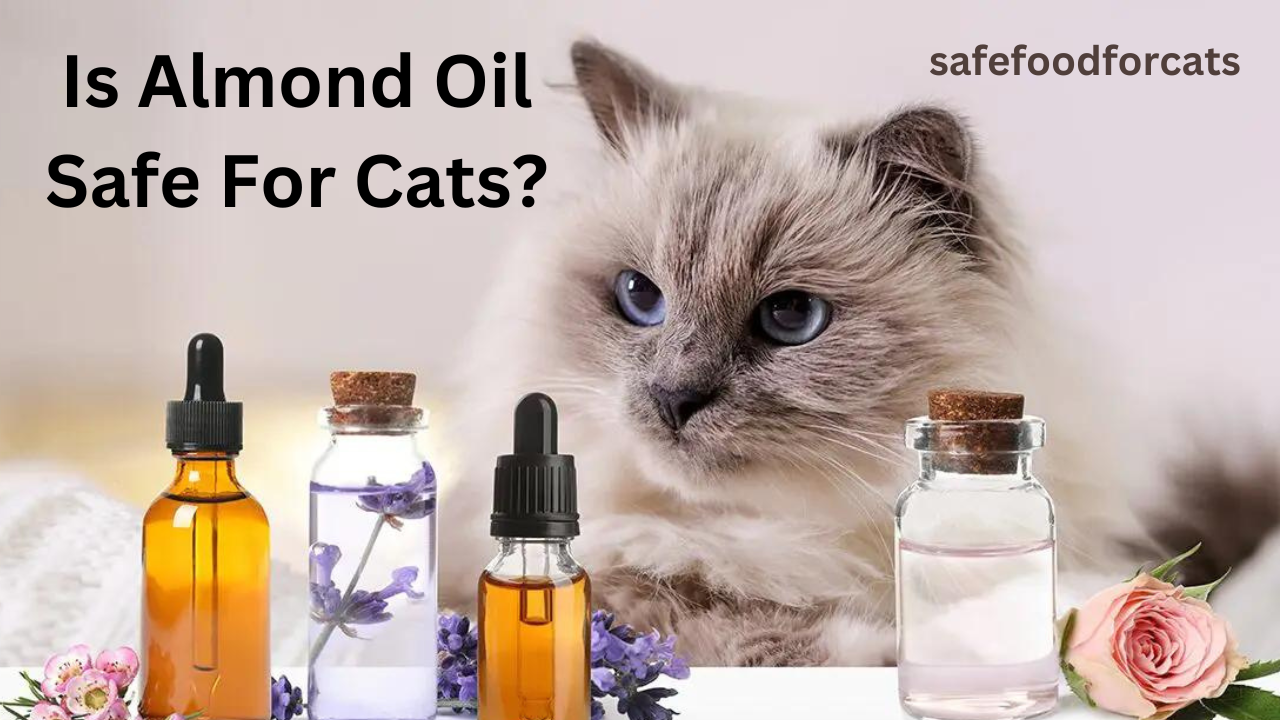Almond oil, obtained from sweet almonds, is known for its moisturizing and healing properties. While it may be safe for external use on cats in moderation, it is essential to exercise caution and be aware of potential risks. Cats have different physiological and metabolic processes compared to humans, making certain substances, including essential oils, potentially harmful to them.
Almond Oil and Cats: Is it Safe?
Almond oil, when applied externally in moderation, is generally considered safe for cats. It is important to ensure that the almond oil used is pure and does not contain any additives or toxic substances that could be harmful to cats. However, even though almond oil is natural, it is always recommended to consult with a veterinarian or a cat groomer before using any new product on your feline companion.

Cats are naturally curious creatures and often explore their environment by sniffing and tasting objects that pique their interest. As responsible pet owners, it is our responsibility to ensure that any products we use around our cats are safe for them, both externally and internally.
Potential Risks of Almond Oil for Cats
While almond oil may be safe for external use on cats, there are potential risks and adverse reactions to consider:
- Skin Irritation: Cats have sensitive skin, and some individuals may be more susceptible to irritation from almond oil. Signs of skin irritation may include itching, redness, inflammation, and dry skin. If you notice any adverse reactions, discontinue the use of almond oil and seek guidance from a veterinarian.
- Ingestion: Cats are known for their grooming habits, and if almond oil is applied to their fur, they may inadvertently ingest it while grooming themselves. Ingesting almond oil in excessive amounts can lead to gastrointestinal upset, including diarrhea and tummy aches.
- Nut Allergies: Some cats may have allergies to nuts, including almonds. If your cat has a known nut allergy, it is best to avoid using almond oil on them altogether.
While almond oil may offer benefits for certain skin conditions in cats, it is essential to be cautious and attentive to your individual cat’s reaction to the oil. Every cat is different, and what may be safe for one cat may not be suitable for another. Before using almond oil or any other product on your cat, perform a patch test by applying a small amount to a small area of their skin and monitor for any adverse reactions.
Alternative Skin Care Options for Cats
If you are considering using almond oil for your cat’s skincare, but are concerned about the potential risks, there are alternative and safer options available:
- Coconut Oil: Coconut oil is generally safe for cats and has moisturizing properties that can benefit their skin. It is gentle and soothing, making it a popular choice for feline skin care. However, as with any new product, it is essential to test a small area first and consult with a veterinarian.
- Aloe Vera Gel: Aloe vera gel, when sourced from pure and safe sources, can be used externally on cats’ skin to soothe and moisturize. Aloe vera has natural healing properties that can be beneficial for certain skin conditions in cats.
- Olive Oil: Olive oil, when used sparingly, can be applied to cats’ dry and flaky skin to provide relief. Like coconut oil, olive oil is gentle and can help alleviate dryness and irritation.
- Vitamin E Oil: Vitamin E oil is another option for feline skin care. It can help promote skin healing and provide nourishment to dry or irritated areas.
Before using any alternative skin care option on your cat, it is crucial to consult with a veterinarian. They can provide valuable advice and recommend the best course of action based on your cat’s individual needs and health status.
Conclusion
Almond oil, with its moisturizing and healing properties, may be safe for external use on cats when used in moderation and if it is free of any harmful additives. However, it is essential to be cautious and considerate of potential risks, such as skin irritation and ingestion. Every cat is unique, and what works for one may not work for another. Before using almond oil or any other product on your cat’s skin, perform a patch test and seek guidance from a veterinarian to ensure their safety and well-being.
As responsible pet owners, we must prioritize our feline companions’ health and ensure that any products we use around them are safe and appropriate for their unique needs. If you are unsure about using almond oil, there are alternative and safer options available, such as coconut oil, aloe vera gel, olive oil, and vitamin E oil, which can offer similar benefits for feline skin care.
Remember to always consult with a veterinarian for personalized advice and recommendations. By taking the necessary precautions and being attentive to our cats’ reactions, we can provide them with the best care and ensure that their skin remains healthy and comfortable.

